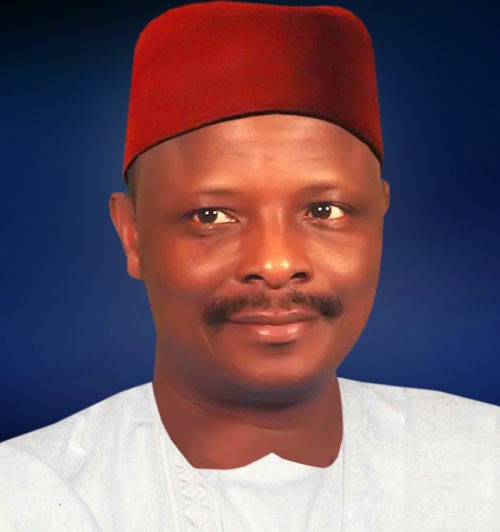The
APC confronts a significant dilemma as it weighs its options and nominates its
presidential flag-bearer for next year’s polls. Thus far, the primaries look to
be a three horse-race between Muhammadu Buhari, Atiku Abubakar and Rabiu
Kwankwaso. These three contenders bring formidable strengths as well as
weaknesses to the table.
Buhari
commands the allegiance of the northern street and the fanatical adulation of
millions who see him as the only one courageous and incorruptible enough to
slay the dragon of official graft. A septuagenarian and a former Head of State,
Buhari is experienced and also enjoys the peculiar benefit of having a public record
that has been burnished by the passage of time. A significant percentage of the
electorate were either too young or had not even been born when he was a
military ruler. This “demographic dividend”, in addition to a national amnesia about
our collective history, has aided his remarkable transformation from dictator
to democrat.
Atiku
Abubakar is a former Vice President, an experienced and thoroughbred politician
with a formidable national political machine oiled by his savvy for wheeling
and dealing and his immense wealth. Governor Rabiu Kwankwaso comes to the table
with youth on his side, and more importantly, a very impressive stint as
governor of Kano, one of Nigeria’s complex and most volatile states. Kwankwaso
has shown himself to be both an adept administrator and an adroit politician –
a very useful combination in a clime in which governance and politics exist in
an uneasy tension.
In
an ideal world, the APC would blend Buhari’s popularity, Atiku’s political
savvy and machine with Kwankwaso’s progressive energy and drive to create its
perfect flag-bearer. It is precisely because it cannot do this that it must reconcile
the weaknesses and strengths of these contenders and ensure that its primaries
are not so fractious that they fatally damage whoever emerges as the winner.
At
72, this is clearly Buhari’s swan song in elective politics after three
previous unsuccessful presidential bids. Elements within the APC leadership
favour him because his haul of 12 million votes in the 2011 polls make him a
bankable vote magnet particularly in the far north. But there are two problems
here. Buhari, for all his popularity in the north, has found it difficult to
become a national brand. The manual for defeating him was written in 2003 when
President Olusegun Obasanjo’s campaign successfully tarred him as a religious
extremist and ethnic bigot. It was slanderous nonsense but the charge has
proven potent in our polarized times not least because of Buhari’s occasional flair
for untimely verbal own goals and self-subverting soundbytes. It did not help
matters that in 2003 and 2007, his party, the All Nigeria Peoples’ Party
campaigned as an “Islamic” party in the North.
Secondly,
Buhari has never actually won an open and fair presidential primary contest. In
2003 and 2007, he was virtually muscled in as a consensus candidate by ANPP
apparatchiks which alienated influential party operatives on both occasions. In
2011, the Congress for Progressive Change which was practically set up as a
vehicle for his presidential ambition floundered because it was manifestly a
personality cult and lacked the organizational acumen as well as the fiscal and
human resources to mount an effective national campaign.
Primary
contests are not about popularity. Rather, they test a candidate’s ability to
rally party delegates. Buhari disdains the sort of wheeling and dealing that
characterizes a nomination process. He perceives himself as being above
politics and is frequently condescending to politicians. Thus, he has never
been able to win over the political operatives that can secure party tickets in
an open contest and has instead typically relied on the anointment of party
elders. The fact that his military regime jailed many Second Republic politicians
has fuelled a residual elite suspicion of his agenda. The APC’s adoption of a
modified direct system for its primaries will allow 300, 000 delegates to
participate and this widening of the pool could enable Buhari be more
competitive than he might ordinarily have been.
Atiku,
on the other hand, is an adept veteran of primary contests since 1993 and is endowed
with the sort of personal and political diplomacy that sways delegates. His accessibility
is in contrast to Buhari’s aloofness. Kwankwaso also has keen political
instincts in this terrain. Both Atiku and Kwankwaso would be far more comfortable
in this arena than Buhari but neither of them possesses Buhari’s name
recognition or that bankable fund of fanatical devotion that would be crucial
in the general election.
It
is quite the conundrum. Buhari may be a fairly competitive brand for national
elections but lacks the transactional skills for primary contests. Atiku and
Kwankwaso have what it takes to fare well in the primaries but do not have
Buhari’s following which would be crucial for the national polls. Atiku lacks
Buhari’s reputation for incorruptibility and Kwankwaso, despite his impressive
work in Kano, must work hard to stamp himself in the national consciousness. In
truth, none of these candidates is certain to defeat the incumbent president
next year.
Buhari’s
partisans will argue that the party leadership ought to do all it can to ensure
Buhari clinches the ticket since he can pull in the numbers. But Atiku and
Kwankwaso could counter that the ability to sway delegates in the primaries is
not to be scoffed at. It is, after all, a predictor of the ability to mobilize
the ground troops for the general elections. They will also point at the rather
limited geography of Buhari’s appeal. Having 12 million votes is of no consequence
if they are sequestered almost entirely in one region. They will observe that
Buhari, despite his adoring legions, has lost thrice to three different ruling
party candidates in a decade, and quite rightly suggest that a persistent
defect in his brand, whether perceptual or actual, makes him nationally
unelectable.
Images sourced from (in order of appearance)
www.today.ng
www.ynaija.com
www.dailypost.ng
www.kanopillars.com




No comments:
Post a Comment